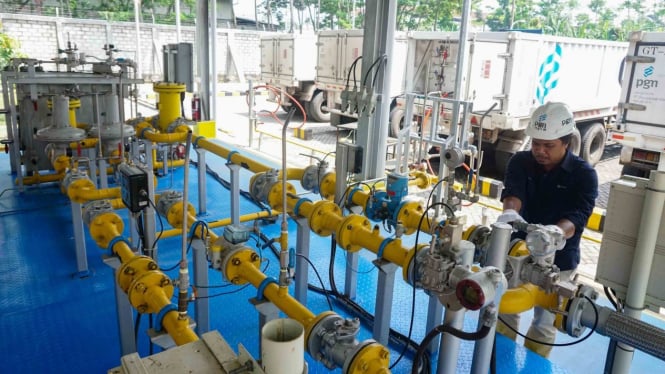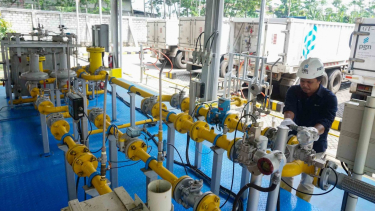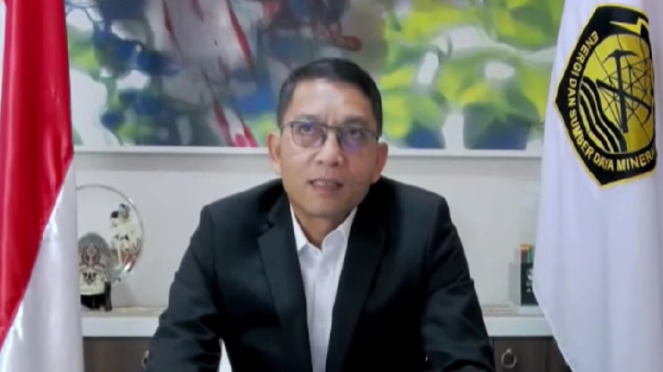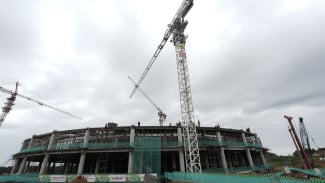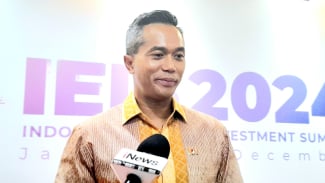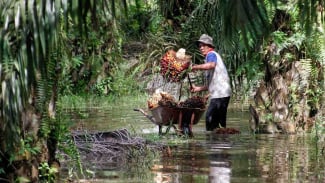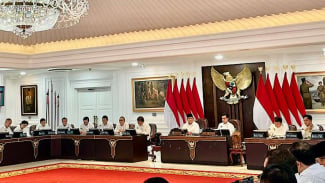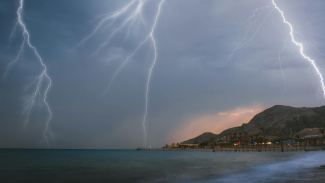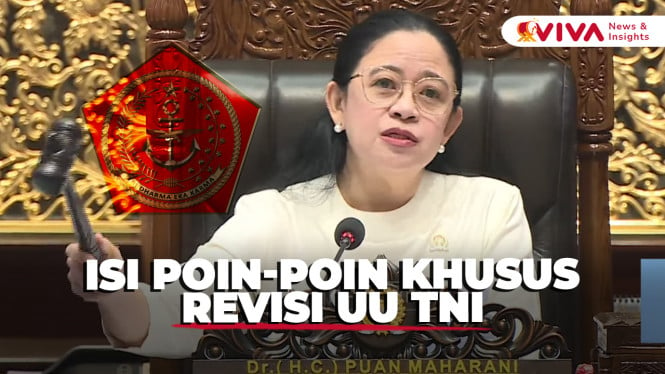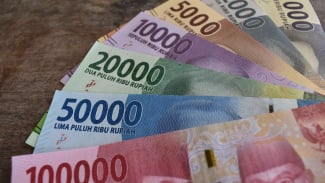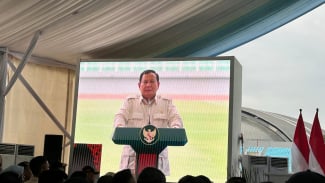Indonesia Pushes for New Gas Fields to Achieve Energy Self-Sufficiency
- VIVA/Dhana Kencana
Jakarta, VIVA – The government is committed to accelerating the development of new gas fields to support national energy resilience and facilitate the transition to net-zero emissions (NZE) by 2060.
Natural gas is seen as playing a crucial role in bridging the energy transition from fossil fuels to clean energy, ensuring a smoother transition.
It can also be categorized as a clean energy source if carbon capture and storage (CCS) technology is applied during the process.
Secretary General of the Ministry of Energy and Mineral Resources and Acting Director General of Oil and Gas, Dadan Kusdiana, stated that during the energy transition, the development of fossil energy, including natural gas, will be accelerated.
"Compared to coal and oil, natural gas has much lower emissions. Our gas production will increase in the next two or three years, and gas will be the main energy source during the transition until we achieve net-zero emissions by 2060," Kusdiana said on Thursday (Dec 10).
He explained that natural gas could also be considered a clean energy source if CCS technology is applied, which captures CO2 and injects it back into the earth.
"Gas field development projects currently underway will also apply carbon capture and storage technologies, such as in the Masela Block, Tangguh, and other gas fields," Kusdiana remarked.
Additionally, natural gas is also important as a raw material for the fertilizer industry.
Therefore, gas plays a strategic role in ensuring domestic energy reliability, providing raw materials for the fertilizer industry to support food self-sufficiency, household gas, and transportation.
Sekretaris Jenderal Kementerian ESDM sekaligus Plt. Direktur Jenderal Minyak dan Gas Bumi, Dadan Kusdiana
- Istimewa
Furthermore, natural gas is a key element in supporting President Prabowo’s vision of energy self-sufficiency, achieving energy sovereignty, and supporting the target of 8 percent economic growth.
"For this reason, the government will continue to encourage the increased use of domestic natural gas to boost the competitiveness of domestic industries through the policy of specific natural gas pricing," he stated.
Meanwhile, Head of the Field Development Department of the Special Task Force for Upstream Oil and Gas Business Activities, Arya Disiyona, provided a concrete example of efforts to accelerate the monetization of natural gas reserves. This includes the discovery of gas at the Geng North-1 well in the North Ganal Block by ENI SpA.
"The Geng North discovery, made in 2023, became a game-changer. The field development plan was approved by the government in August 2024, just 10 months later, and the development project is targeted to be onstream by 2027," Disiyona said at the same occassion.
In addition to accelerating approval and licensing processes, Disiyona said SKK Migas and the government also provide various incentives to upstream oil and gas contractors (KKKS) to make the economics of gas field development projects more attractive.
"The types of incentives provided to KKKS are adjusted according to the applicable regulations," he added.


